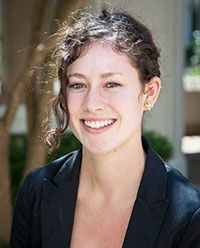
Somerville-Cambridge Elder Services Resource Specialist, Colleen Morrissey.
By Colleen Morrissey
Providing dementia care can be a challenge, but at Somerville-Cambridge Elder Services (SCES) we help caregivers identify services that help maximize independence and quality of life for both themselves and the people they care for.
Senior Elder Care Advisor Anne Keefe is an expert in caregiver support, who provides free consultations through the Aging Information Center at SCES. The assistance is tailored to fit the needs of each caregiver, but Keefe said it typically includes educational materials, dementia coaching sessions, help with family meetings, and connecting people with local supports.
“We help people navigate the array of resources out there – it can be very confusing,” said Keefe. “We help them come up with a plan of care, and we can follow the caregiver and be there as a coach, when questions come up. It’s a very specialized service that we provide.”
Here are some of the free resources that Keefe often suggests for caregivers:
- Adult Family Care (AFC) supports and financially assists live-in caregivers for those who are unable to live alone and are eligible for MassHealth/Medicaid. AFC supports caregivers with compensation, guidance, and paid time off.
- Music & Memory is a grant-funded program that uses music to trigger memories and help dementia patients reconnect with the outside world, by providing each participant with an iPod and a tailored playlist of music that’s meaningful to them. “We know that music is strongly connected to memories, and that music can elicit these memories,” said Keefe.
- Memory cafes are social gatherings for people with dementia and their care partners. While each café is unique, all are free and accessible, with activities geared toward a wide range of cognitive abilities. They also provide a place to gather with others who understand what they’re going through and explore new activities in a stigma-free environment.
- Local caregiver support groups are generally open to any caregiver, although some focus on dementia or other specific medical issues. The Somerville Council on Aging offers a monthly group for caregivers to share their experiences and provide practical support to each other.
- There is a wide variety of educational materials on caregiving, from pamphlets on honoring end-of-life decisions to booklets on long-distance caregiving. Keefe often recommends a guide published by the National Institute on Aging and the Alzheimer’s Association. “It is a wonderful guide on any number of topics related to Alzheimer’s,” said Keefe. “It answers questions like, how do I best communicate with my loved one? Or, if we’re going out to a restaurant, what do I need to think about to make that person comfortable?”
For more information on any of these resources, contact the Aging Information Center at 617-628-2601. The Family Caregiver Support Program is free and open to all residents of Cambridge and Somerville, and nonresident caregivers who are caring for adults 60 and older, or younger persons with Alzheimer’s/related memory disorders. Consultations can take place at our office, in your home, or over the phone.
Colleen Morrissey is a Resource Specialist at Somerville-Cambridge Elder Services (SCES), a private, non-profit agency dedicated to improving the quality of life and maintaining the dignity and independence of older people in Somerville and Cambridge. For more information about SCES, visit eldercare.org or follow SCES on Facebook and Twitter.












Reader Comments